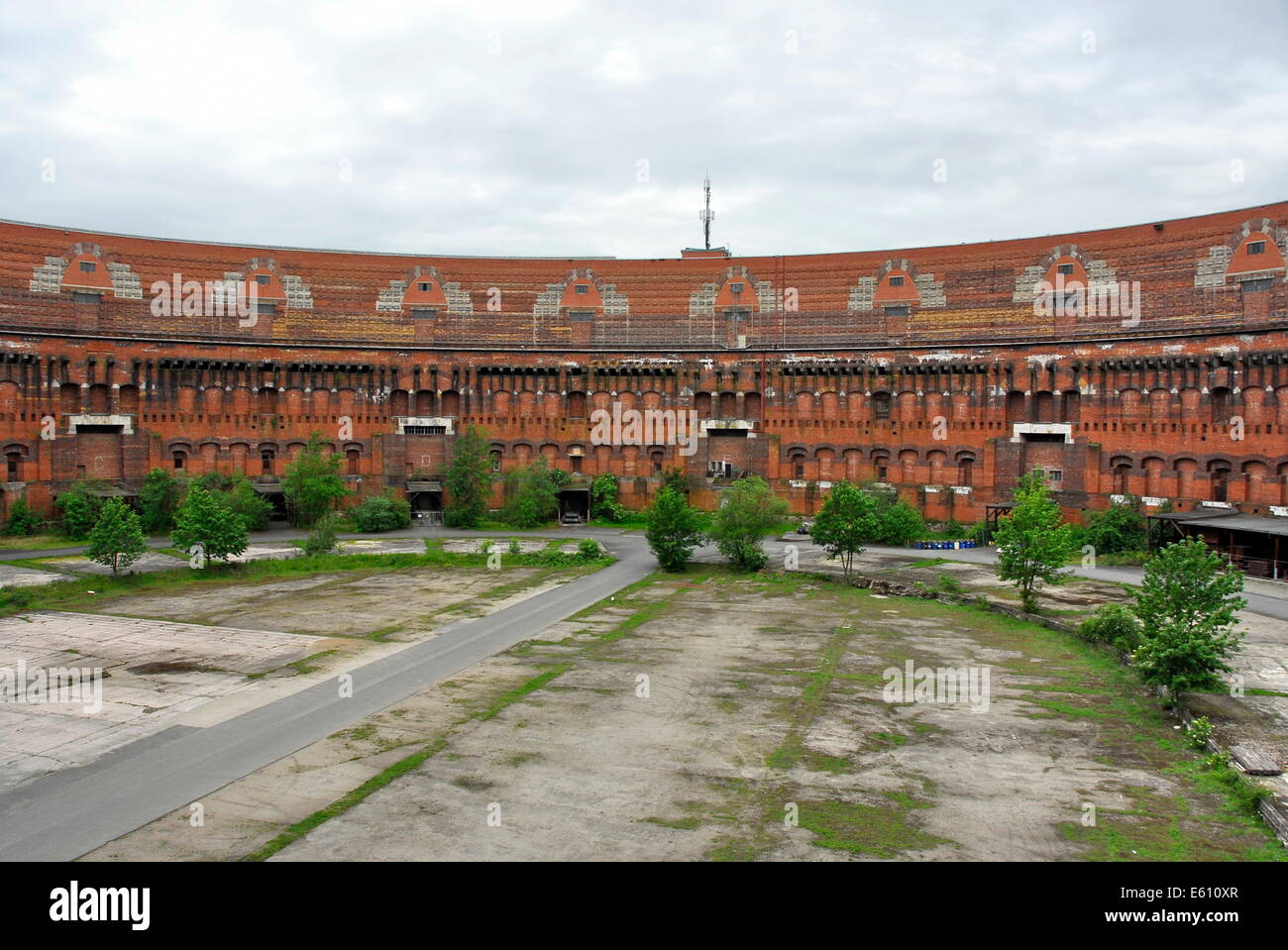Unfinished Nazi Congress Hall near Zeppelin Field (Zeppelinfeld), the Nazi Party Grounds, in Nuremberg, Germany

Image details
Contributor:
Dimitry Bobroff / Alamy Stock PhotoImage ID:
E610XRFile size:
27.2 MB (1.2 MB Compressed download)Releases:
Model - no | Property - noDo I need a release?Dimensions:
3772 x 2524 px | 31.9 x 21.4 cm | 12.6 x 8.4 inches | 300dpiDate taken:
May 2014Location:
Nuremberg, GermanyMore information:
Nuremberg is a city in the German state of Bavaria, in the administrative region of Middle Franconia. Situated on the Pegnitz river and the Rhine–Main–Danube Canal, it is located about 170 kilometres (110 mi) north of Munich. It is the second-largest city in Bavaria (after Munich), and is the largest in Franconia. The population as of December 2011, is 510, 602, which makes it Germany's fourteenth largest city. The "European Metropolitan Area Nuremberg" has 3.5 million inhabitants. Nuremberg held great significance during the Nazi Germany era. Because of the city's relevance to the Holy Roman Empire and its position in the centre of Germany, the Nazi Party chose the city to be the site of huge Nazi Party conventions – the Nuremberg rallies. The rallies were held 1927, 1929 and annually 1933-1938 in Nuremberg. After Adolf Hitler's rise to power in 1933 the Nuremberg rallies became huge Nazi propaganda events, a centre of Nazi ideals. The 1934 rally was filmed by Leni Riefenstahl, and made into a propaganda film called Triumph des Willens (Triumph of the Will). At the 1935 rally, Hitler specifically ordered the Reichstag to convene at Nuremberg to pass the anti-Semitic Nuremberg Laws which revoked German citizenship for all Jews and other non-Aryans. A number of premises were constructed solely for these assemblies, some of which were not finished. Today many examples of Nazi architecture can still be seen in the city. The city was also the home of the Nazi propagandist Julius Streicher, the publisher of Der Stürmer. Between 1945 and 1946, German officials involved in war crimes and crimes against humanity were brought before an international tribunal in the Nuremberg Trials. The Soviet Union had wanted these trials to take place in Berlin. However, Nuremberg was chosen as the site for the trials for specific reasons: